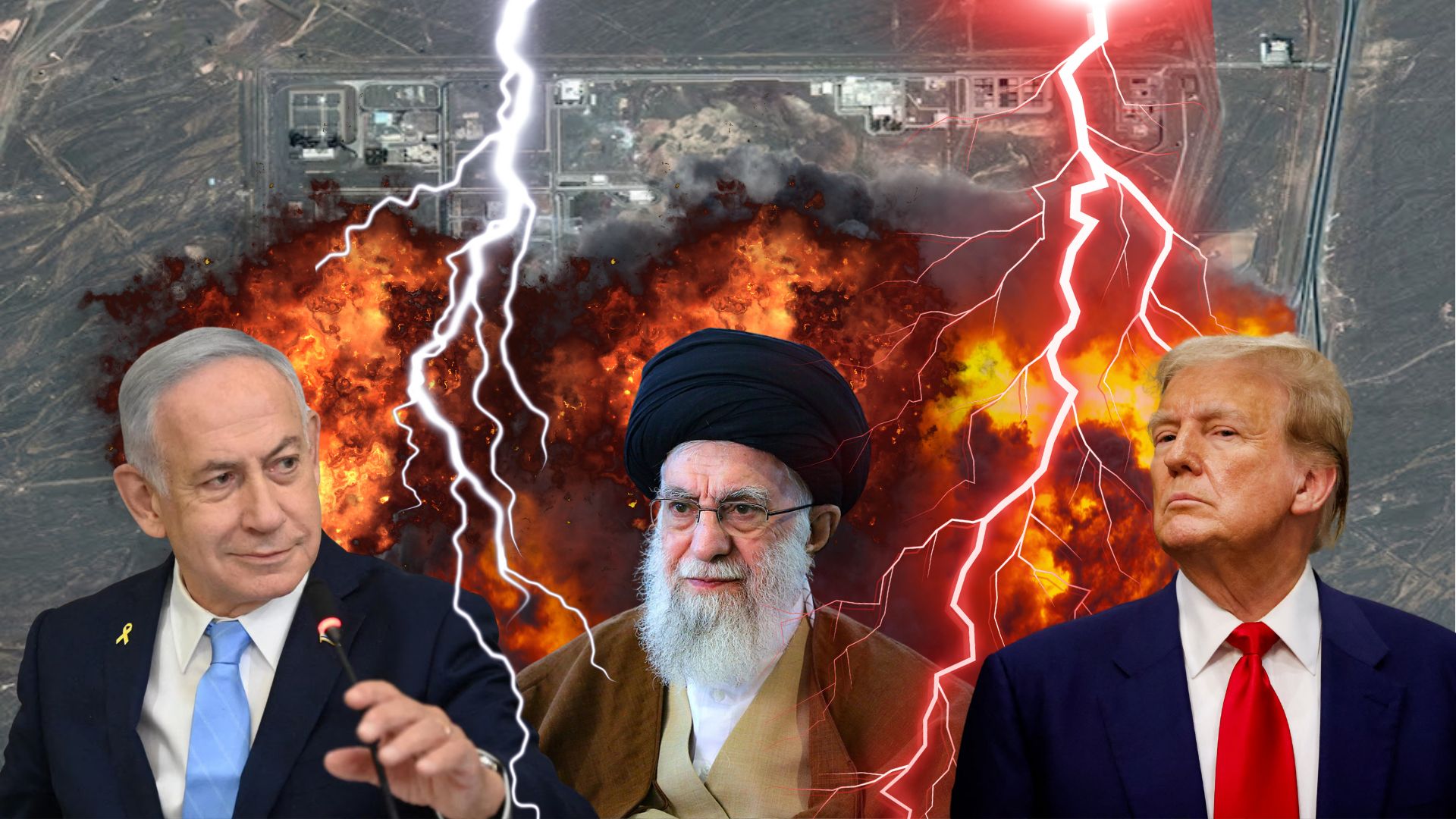The war that Israel lost

Since its highly contentious and controversial founding in 1948, Israel, backed by its all-weather ironclad ally across the Atlantic and exploiting Europe's collective guilt, has gotten used to flexing its military muscle on the people of Palestine and illegally occupying their lands with impunity. The ongoing genocide in Gaza is only the latest episode of this brutality and its total disregard for international law and human lives.
Emboldened by his "success" in the most gruesome and uninterrupted genocide in Gaza and its unarmed population, Israel's murderous Prime Minister Benjamin "Bibi" Netanyahu and the extreme hardline Zionist partners in his government believed that they could carry out a repeat act on Iran using mid- to long-range missiles, ostensibly targeting Iran's nuclear facilities. Only this time, Bibi met his match. After Iran retaliated in equal—and at times more effective—terms, within less than two weeks Netanyahu was begging for a ceasefire before Iran wrought greater damage on key Israeli cities and military and intelligence installations in Tel Aviv and other parts of the country. It was only with the direct intervention of US President Donald Trump that Bibi managed to save his skin, at least for now. President Trump has publicly stated of the huge damages that Iran's counter-offensive had caused in Israel.
Clearly, Israel's political and military leadership did not do their homework on Iran—its rich culture and long history, its resolve to defend itself against all kinds of adversity. Intoxicated by what he has done and continues to do in Palestine, Netanyahu believed Iran would be an equally easy target. He forgot that Iran had fought and survived a much longer war, one that lasted eight years, against Iraq when Saddam Hussein was lulled into believing that Iran was still in a political, social and military flux following its historic revolution and the overthrow of Shah regime in 1979. Egged on by players who perceived that the new Iran was unstable and weak, Saddam launched his military into Iran in 1980 and the prolonged and bloody conflict between the two neighbouring countries lasted until 1988. The war was sparked by a complex mix of territorial disputes, mostly over the contested Shatt al-Arab waterway, a vital oil shipping route, and ideological differences.
The war quickly devolved into a bloody stalemate, characterised by trench warfare, human wave attacks, and the use of chemical weapons by Iraq. Iran launched counter-offensives, pushing back the Iraqi forces and even invading Iraq's territory. Although the war concluded without a clear military victor, leaving both nations with massive casualties and economic hardship, for Iran not to have lost territory meant a major victory. It was a most graphic reflection of the Iranian people's resolve and conviction to stand as one when facing an enemy, even if the odds are against them. Journalist Christian Amanpour of CNN, who is of Iranian descent, recalled recently how an uncle of hers, who was a high-ranking military officer in Shah's Iran and who had gone into exile following the 1979 revolution, chose to return to Iran to defend his country against the Iraqi invasion. He saw active action in the battlefront and was wounded multiple times. According to Amanpour, while an individual Iranian may nurture deep opposition against the government in Tehran, when the country is under attack, the priorities shift and defending it becomes a moral and a societal responsibility. This is when the civilisational Persian DNA comes into play.
Obviously, Bibi and his hardline colleagues were suffering from deep amnesia. The supreme irony is that they even chose not to remember that it was Cyrus II, or Cyrus the Great of Persia, who is exalted in Judaism for freeing the Jewish people from the Babylonian captivity following the Persian conquest of Babylon in Sixth Century BCE. This event is described in the Hebrew Bible as the return to Zion whereby displaced Jews were repatriated to what had been the Kingdom of Judah. This enabled the resurgence of Jewish life in the Land of Israel. Cyrus also facilitated Jewish aspirations for a new temple in Jerusalem, where the original Solomon's Temple had once stood before being destroyed during the Babylonian siege of Jerusalem. His efforts resulted in the completion of the Second Temple, which marked the beginning of the Second Temple period of Judaism. According to the Book of Isaiah, Cyrus the Great was anointed by Yahweh and explicitly designated as the "messiah" for his seminal role in bringing Jews back to Jerusalem. Cyrus is the only non-Jewish figure to be revered in this capacity. For the ungrateful Zionists of today, as symbolised by the likes of Netanyahu, history has no place in their genocidal narrative. They ventured to bite the hand that had saved them and got bitten instead.
At the outset of Israel's missile attacks on Iran, Netanyahu made what can best be described as a comical appeal to the people of Iran to rise against the regime—in other words, a call for regime change. In fact, a change of regime is still a possibility, but that's more likely to happen in Tel Aviv, not Tehran.
Shamsher M Chowdhury, Bir Bikram is a former foreign secretary of Bangladesh.
Views expressed in this article are the author's own.
Follow The Daily Star Opinion on Facebook for the latest opinions, commentaries, and analyses by experts and professionals. To contribute your article or letter to The Daily Star Opinion, see our guidelines for submission.



 For all latest news, follow The Daily Star's Google News channel.
For all latest news, follow The Daily Star's Google News channel. 

Comments